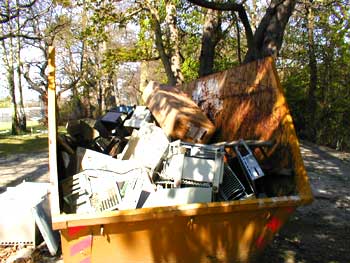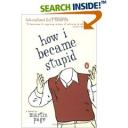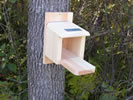When I started this year long project to examine and change my transportation habits, I had a sneaking suspicion that no matter what I did–ride a bike, take a bus, walk, drive my car–one fundamental thing had to change: driving less means using less. Driving is about Consuming, pure and simple, and what I’ve learned is that as I’ve driven less, I’ve consumed less in all kinds of ways. And using less is good. It’s anathema to our culture, but it’s good…and I keep coming back to it, again and again.
Writer, researcher and activist Annie Leonard has been spending the last 10 years thinking about and researching our material-based culture. She’s been talking about it too, but has not been able to gain traction…until she put together a truly brilliant 20 minute film that’s easy on the eyes and brain, but still packs a punch. She also changed the name of her focus from material usage to Stuff.
Watch The Story of Stuff–watch it now! it’s so right on, and encouraging too–we can change the way our obsolescent-dependent culture drives us crazy!
Take some time to watch her film, The Story of Stuff. What it’s about: like the title suggests, it’s the story of stuff. And she manages to take a systems approach to our whole way of life, our entire culture to explain just how stuff works…and how we participate in the creation, consumption, and disposal of stuff. It’s an untenable cycle of life, pure and simple.
And the only way out is: use less, consume less, need less. Do less, buy less, create less. Whatever happened to Less is More? We’ve completely lost touch with the concept–and now we are mindlessly buying, using, consuming, trashing more stuff than ever in the history of the world.
I suspect that once my year of transportation evaluation is over I may be turning my personal attention to this issue. And it is incredibly thorny–everything in me wants what it wants and wants it now. I’m as culpable as the next person, sometimes more, in terms of consuming–but I know, I KNOW, this cannot continue and the only thing I can do is change my own habits. I know I can systematically look at how I buy and consume and begin to deconstruct it, bit by bit–and begin to Stop Doing What I’m Doing.
And I also suspect that I will be zeroing in on one area of massive consumption that nearly epitomizes all that’s wrong with corporate supply-and-demand: processed food.
Now that I’ve said that, do watch this film and consider the role of Corporations in her explanation. And again, I point to John Edwards as the only candidate in the field who has strongly addressed dual issues regarding Corporations, the environment, and the cycle of greed that drives the growth of corporations.
Not endorsing, I’m just sayin’….
On my transportation front: I’ve been so busy lately, I haven’t been able to post on a regular basis. On the other hand, I’m starting to think about weekly transportation caps–I haven’t gotten my route to Poulsbo figured out yet, ie, bus use. I’ve got too much to juggle right now and things haven’t calmed down. So I’m still successfully keeping my car usage down, but have also targeted a 75 mile a week cap. I’m well under that this week with 51 miles, so that’s all good. Is 75 miles a week too much? Does that seem reasonable? Any thoughts out there?
Daily Stats: (Sun, Mon, Tue, Wed, Thu, Fri, Sat, Sun)
Car: 51 miles
Bike: 7.0
Ped: 5
Bus: 2 miles






